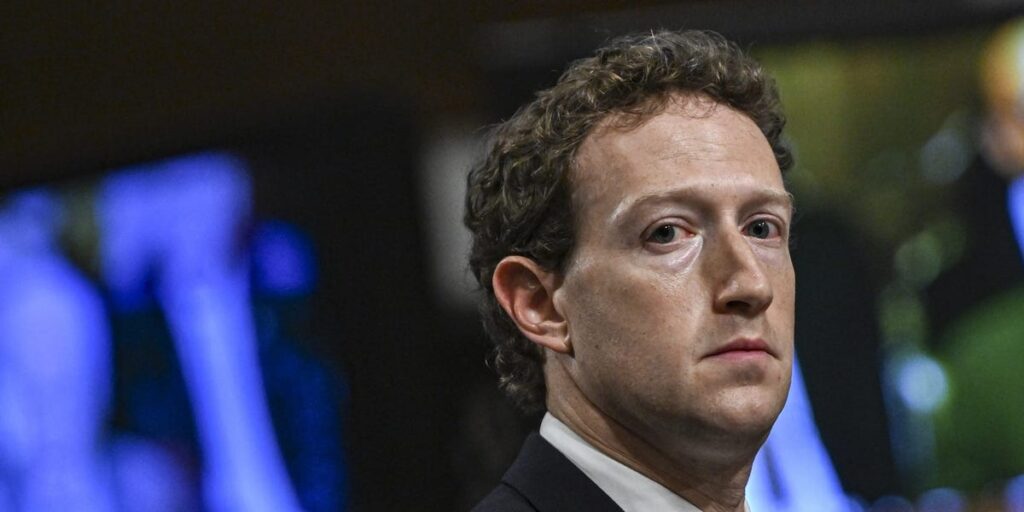Amazon and Meta may face significant challenges due to President Donald Trump’s newly announced tariffs, according to analysts and industry insiders. Trump has introduced a 10% tariff on products imported from all countries outside the U.S., with higher rates for specific countries; notably, China is subjected to a staggering 54% tariff. As a result, tech stocks reacted negatively, experiencing sharp declines.
Both Amazon and Meta rely heavily on Chinese advertisers targeting American consumers, which may lead these companies to either pause their advertising campaigns or experience a drop in business. Advertising analyst Brian Wieser highlighted that retail and digital media sectors will be notably affected by the tariffs, especially since many products shipped from China and Vietnam are crucial for Amazon and Meta’s operations. Wieser estimates that about $10 billion of Meta’s revenue in the U.S. comes from international advertisers, predominantly from China. He also referenced research indicating that China accounts for half of Amazon’s top-selling products in the U.S., driving a significant portion of its advertising revenue.
Eric Haggstrom, a market intelligence director at Advertiser Perceptions, noted that immediate impacts could be particularly felt in fast-moving consumer goods like apparel and home goods. He remarked, “The biggest losers are going to be those companies dependent on advertising from Chinese sources, especially in social media and retail media.”
The effects of these tariffs are anticipated to reverberate across all product categories and advertising platforms, given the interconnected nature of global supply chains. Notably, Apple may also suffer substantial losses, given that China serves as its primary manufacturing location. However, the current volatility makes it difficult to predict the full extent of the impact.
Despite these challenges, some believe that companies like Amazon, Meta, and Google will remain resilient due to their scale and measurable effectiveness in driving results. Nadja Bellan-White, CEO of M&C North America, pointed out that retail media platforms are poised to succeed, as advertisers will demand performance guarantees more than ever to ensure they get the results they expect from their spending.
NewStreet Research highlighted that platforms such as Pinterest, Reddit, and Snap may be more vulnerable due to their smaller user bases compared to major players like Meta. For instance, while Reddit has engaged user communities, it presents a unique atmosphere that can be harder for advertisers to navigate.
This turmoil in advertising comes at a critical moment as the industry gears up for the television upfronts—the key event for TV networks to secure advertising commitments from major advertisers. While brands are eager to invest in advertising for product launches, Haggstrom cautioned that the ongoing economic conditions may extend negotiations.
Events like live sports are still seen as valuable for advertisers due to their reliable and large audiences, providing opportunities for companies like Disney and NBCUniversal. As advertisers navigate potential political fallout, many see sports as a safer bet.
However, caution is advised, as companies may become hesitant to commit to substantial TV buys and could redirect funding toward more flexible digital platforms.
Regarding media and entertainment, analysts from Morningstar note that an economic downturn linked to tariffs could adversely affect companies reliant on consumer spending, which also derive income from advertising.
Disney, being heavily invested in its parks and experiences, may suffer if tourism declines. Although it’s streaming division is improving, it might not fully compensate for losses in its experiences division. Warner Bros. Discovery has also enjoyed recent streaming success, but its significant debt could pose risks if credit markets tighten.
Netflix, while lacking extensive experiential offerings like Disney to buffer against economic downturns, has achieved a service levels that may encourage subscribers to remain. Nevertheless, Bernstein analysts warn that Netflix’s growth in Europe could face challenges if retaliatory tariffs are enacted.
Finally, TikTok remains a wildcard in this evolving landscape. While some advertisers are effectively leveraging its capabilities for driving results, others remain cautious due to potential regulatory hurdles related to its ownership. Moreover, Trump’s tariffs could also play a role in determining TikTok’s future, as he has suggested using them as leverage in discussions around its ownership structure with China.


